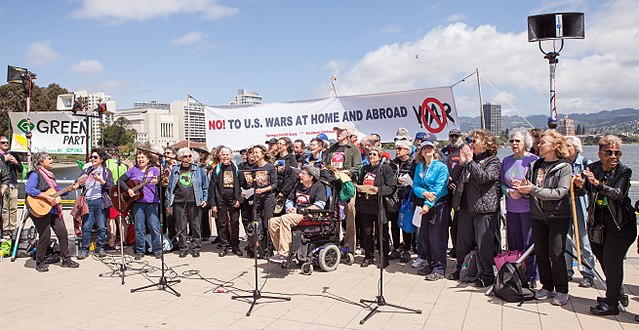
by Stefan Schindler
To get to the truth of a war story, find the square root of an absolute, then multiply by maybe. That’s Tim Obrien’s formula for guessing the veracity of any tale told by Rat Kiley. Kiley was a platoon buddy during the Vietnam War. O’Brien declares: “It wasn’t a question of deceit. Just the opposite: he wanted to heat up the truth, to make it burn so hot that you would feel exactly what he felt.” Admirable; and understandable. “This isn’t civilization. This is Nam,” says O’Brien. “The thing about remembering is that you don’t forget.”
These are quotes from O’Brien’s celebrated memoir, The Things They Carried. Here’s another: “The land was haunted. We were fighting forces that did not obey the laws of twentieth-century science.” And another: “I’d pulled enough night guard to know how the fear factor gets multiplied as you sit there hour after hour, nobody to talk to, nothing to do but stare into the big black hole at the center of your own sorry soul.”
O’Brien has a way with words. Like the best of writers, he makes writing seem easy, even though it’s not. I recall a poet saying: “It’s easy to write. Just stare at a blank sheet of paper until droplets of blood form on your forehead.”
As with T. S. Eliot’s mixture of memory and desire in “The Wasteland,” O’Brien’s stories heat to a sizzle, then reach from the page to scorch your eyes. Sometimes I think he channels Dylan. For example: “You’re never more alive than when you’re almost dead.”
It’s been said that in war, the first casualty is truth. But there is a truth that can be said. It is this: War is the ultimate obscenity. It ranks right up there with slavery and rape.
What too often goes unnoticed, though, is that soldiers are almost always slaves to the stories they’ve been told by the spin-meisters of profit and power. Such soldiers rape – and slash, burn, maim and kill – because their capacity for reason and conscience has been sucked into a vortex of patriotic idolatry. Unaware they’ll be brutalized by their own brutality, they are sent to the killing fields by what Eliot calls the “hollow men” who rule from the heights of hubris.
Stefan Schindler is the co-founder of The National Registry for Conscientious Objection; a Board Member of The Life Experience School and Peace Abbey; and author of America’s Indochina Holocaust: The History and Global Matrix of The Vietnam War. His forthcoming book is entitled Buddha’s Political Philosophy.



